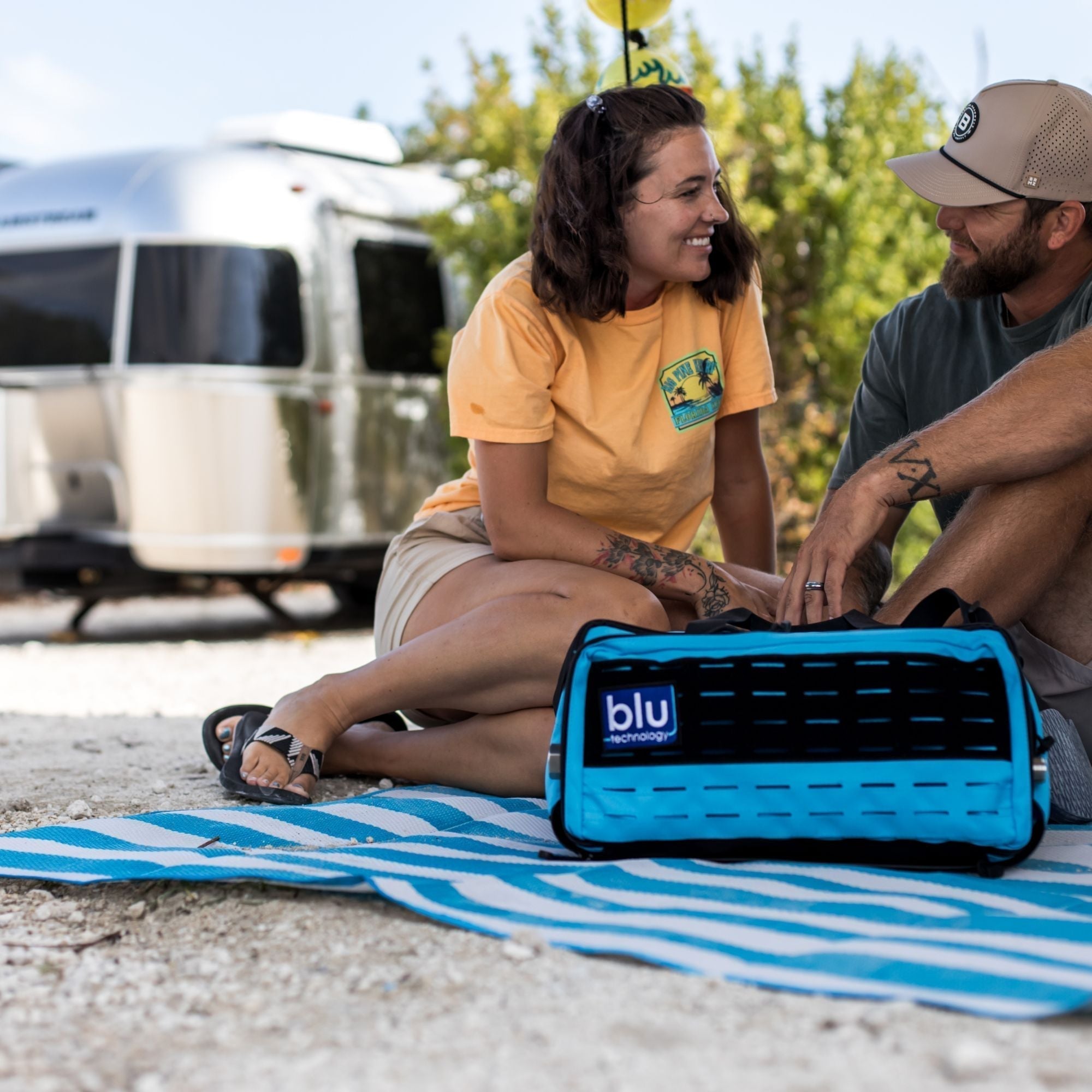When you’re traveling in your RV, you expect the scenery to change, but sometimes the water rules change even faster. From quirky restrictions to serious fines, U.S. RV water laws can catch even seasoned travelers off guard. Some are logical, some are relics of the past, and a few are just plain surprising. Here are real water laws that could impact your next road trip and how to stay in the clear.
1. No Dumping Gray Water in National Parks. Ever
Rule: Dumping gray water (from sinks, showers, or dishwashing) is prohibited in U.S. national parks to protect natural ecosystems and water quality.
Why It Matters: Improper gray water dumping can pollute soil and waterways, harm wildlife, and spread bacteria that threaten public health.
RV Tip: Always use designated dump stations and never release gray water in or near national parks to stay compliant and protect nature.

2. Colorado’s Rain Barrel Limit
Rule: In Colorado, residents are allowed to collect up to 110 gallons of rainwater from their rooftops for personal use without a water right. This law encourages small-scale water conservation while still protecting the state’s regulated water system.
Why It Matters: Colorado’s strict water laws protect limited water resources in a dry climate, ensuring fair access and sustainability for communities, agriculture, and the environment.
RV Tip: You can legally collect up to 110 gallons of rainwater from your RV or campsite rooftops for personal use in Colorado, no permit needed.

3. California’s Nozzle Law
Rule: Always use a shut-off nozzle on hoses as the state law requires it to prevent water waste.
Why It Matters: California’s hose nozzle law helps reduce water waste in a drought-prone state, conserving supplies for both people and the environment.
RV Tip: Equip your RV hoses with a shut-off nozzle to stay compliant with California law and conserve water on the road.

4. Las Vegas Water Schedules
Rule: Las Vegas enforces strict watering schedules. Residents and visitors can only water lawns on designated days to conserve scarce desert water.
Why It Matters: Las Vegas’ watering schedule conserves scarce desert water, helping ensure a sustainable supply for residents, businesses, and future generations.
RV Tip: Plan your RV water use and landscaping around Las Vegas’ designated watering days to stay compliant and conserve water.

5. Arizona’s Standpipe Permits
Rule: In Arizona, RVs and other vehicles must have a standpipe permit to legally access public water fill stations, ensuring proper tracking and water conservation.
Why It Matters: Arizona’s standpipe permit law ensures fair water access, accurate usage tracking, and conservation in a state where every gallon counts.
RV Tip: Always get a standpipe permit before filling your RV at public Arizona water stations to stay legal and avoid fines.

6. Florida’s “Water Theft” Statute
Rule: In Florida, taking water from public or private sources without permission is considered water theft and is subject to criminal penalties.
Why It Matters: Florida’s water theft law protects public and private supplies, ensuring fair access, preventing shortages, and safeguarding essential resources for communities.
RV Tip: Only use authorized water sources in Florida and never take water without permission to avoid fines or legal trouble.

7. Oregon’s Graywater Rules
Rule: Oregon prohibits dumping gray water (from sinks, showers, or dishwashing) directly onto the ground in most areas, requiring proper disposal to protect the environment.
Why It Matters: Oregon’s gray water disposal law prevents pollution, protects aquatic ecosystems, and keeps drinking water sources safe for communities and wildlife.
RV Tip: Always use designated gray water disposal sites in Oregon to stay legal and protect local waterways.

8. Emergency Drought Fill Bans
Rule: During declared drought emergencies, many states prohibit filling pools, hot tubs, decorative ponds, or large water tanks to preserve critical water supplies.
Why It Matters: Emergency drought fill bans protect dwindling water reserves, ensuring enough supply for essential needs like drinking, sanitation, and firefighting.
RV Tip: During drought emergencies, avoid filling large RV water tanks or pools. Follow local restrictions to conserve limited supplies and avoid penalties.

How to Follow the Laws and Keep Your Water Safe
- Check local RV water restrictions before you travel.
- Call campgrounds ahead during drought-prone months.
- Carry a reliable RV water filtration system so you can make the most of whatever legal source you find.
Why RVers Should Consider a Water Filtration System
Traveling across different states exposes your RV to varying water qualities, and not all water sources are created equal. Even if you follow every law, untreated water can still contain bacteria, sediment, chlorine, or other contaminants that affect your health and your RV.
A water filtration system can help:
- Ensure Safer and Cleaner Water: Reduces bacteria, viruses, and other harmful contaminants.
- Improve Taste & Smell: Removes chlorine and other compounds that make water unpleasant.
- Protect Your RV: Prevents scale buildup and corrosion in your plumbing and appliances.
- Offer Convenience: Fill your RV tank at campgrounds or city sources without worrying about water quality.
- Save Money & Reduce Waste: Limits the need for bottled water.
By using an RV water filtration system, RVers can enjoy peace of mind knowing their water is cleaner and safer while still respecting state and local water laws. The team at Blu Technology has created many great and innovative systems, including the Adventure Series AR3 5-inch, AR3 XLt 10-inch, R3, The TRIO, and our 4-stage advanced AR3 UVC System in both a 5-inch and 10-inch. With rules changing from state to state, an RV water filtration system ensures that even if you have to get creative with your legal fill-ups, your water will be cleaner and safer.


Share:
Could You Survive on 6 Gallons of Water a Day? A Dry Camping Water Challenge
Fuel Your Wander with Blu Technology: Cleaner Water Solutions for Every RV Journey